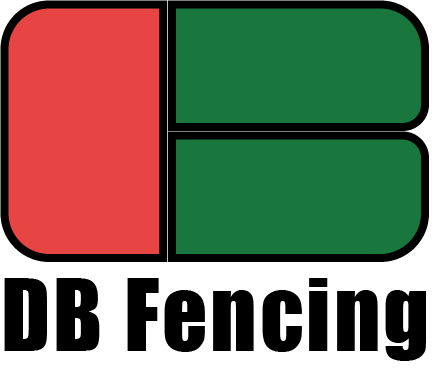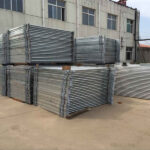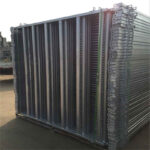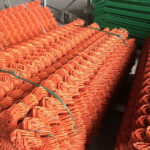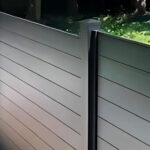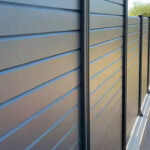Aluminum fencing has gained popularity in recent years due to its durability, low maintenance, and aesthetic appeal. However, like any fencing option, it comes with its own set of drawbacks. In this comprehensive guide, we’ll explore the potential disadvantages of aluminum fences to help you make an informed decision for your property.
Initial Cost Considerations
One of the primary disadvantages of aluminum fencing is its higher upfront cost compared to some other fencing materials:
- Higher Initial Investment: Aluminum fences typically cost more to purchase and install than traditional wood or chain-link fences. The price can range from $20 to $50 per linear foot, depending on the quality and style of the fence panel.
- Premium for Custom Designs: If you’re looking for custom designs or specialized features, the cost can increase significantly, making it less accessible for budget-conscious homeowners.
While the long-term durability of aluminum fencing can offset these initial costs, the higher upfront investment can be a deterrent for some property owners.
Limited Privacy Options
Aluminum fences are known for their open, airy designs, which can be a disadvantage if privacy is a primary concern:
- Sichtweite: Most aluminum fence panels are designed with spaces between pickets, offering little to no privacy from neighbors or passersby.
- Additional Costs for Privacy Solutions: To enhance privacy, you may need to invest in additional features like privacy slats or landscaping, which can add to the overall cost of your fencing project.
For those seeking a more secluded outdoor space, alternatives like wood privacy fences might be more suitable.
Potential for Damage
While aluminum fences are generally durable, they are not impervious to damage:
- Denting and Bending: Aluminum is a softer metal compared to steel, making it more susceptible to denting or bending from impacts, such as fallen tree limbs or lawn equipment.
- Difficulty in Repairs: Unlike wood fences where individual boards can be easily replaced, repairing damaged aluminum fence sections often requires replacing entire panels, which can be more costly.
Limited Strength Compared to Steel
For properties requiring maximum security or strength, aluminum may fall short:
- Less Robust Than Steel: Aluminum fences are not as strong as steel fences, which may be a concern for commercial properties or areas with high security needs.
- Not Ideal for Large Animals: If you’re fencing in large livestock, aluminum may not provide the necessary strength and durability required.
Color and Finish Limitations
While aluminum fences come in various colors, they have some limitations:
- Begrenzte Farboptionen: Compared to wood or vinyl fences that can be painted in any color, aluminum fences typically come in a limited range of powder-coated finishes.
- Potential for Fading: Over time, the powder-coated finish may fade or chip, especially in areas with intense sun exposure.
Installation Challenges
Installing an aluminum fence can present some challenges:
- Uneven Terrain: On significantly sloped or uneven ground, aluminum fencing can be more difficult to install properly, often requiring custom panels or additional labor.
- Professional Installation Recommended: While DIY installation is possible, achieving a perfectly level and secure fence often requires professional expertise, adding to the overall cost.
Umwelterwägungen
While aluminum is recyclable, there are some environmental factors to consider:
- Energy-Intensive Production: The production of aluminum is energy-intensive, which may be a concern for environmentally conscious homeowners.
- Not Biodegradable: Unlike wood fences, aluminum fences do not biodegrade at the end of their life cycle.
Aesthetic Limitations
Aluminum fences have a distinct look that may not suit all architectural styles:
- Modern Appearance: The sleek, modern look of aluminum fencing may clash with traditional or rustic home designs.
- Less Customizable: Compared to wood fences, aluminum offers fewer options for customization in terms of design and texture.
Potential for Theft
In some areas, metal fencing can be a target for theft:
- Scrap Metal Value: Although less common than with copper or steel, aluminum fences may be targeted by thieves for their scrap metal value.
Noise Considerations
Aluminum fences can sometimes create unwanted noise:
- Rattling in Wind: In areas with high winds, aluminum fences may produce a rattling sound, which can be bothersome to some homeowners.
Electrical Conductivity
As a metal, aluminum has some electrical properties to be aware of:
- Lightning Risk: In areas prone to lightning strikes, aluminum fences can pose a slight risk as they can conduct electricity.
Einhaltung gesetzlicher Vorschriften
Some neighborhoods or municipalities may have restrictions on fencing materials:
- HOA Restrictions: Some homeowners’ associations may have rules against metal fencing, preferring more traditional materials like wood.
- Building Codes: Local building codes may have specific requirements for fence height or style that could limit your aluminum fencing options.
Difficulty in Changing Design
Once installed, changing the look of an aluminum fence can be challenging:
- Permanent Finish: Unlike wood fences that can be repainted, the powder-coated finish on aluminum fences is permanent and difficult to change.
- Costly to Replace: If you decide to change your fence style in the future, replacing an entire aluminum fence can be more expensive than replacing a wood fence.
Fazit: Vor- und Nachteile abwägen
While aluminum fences offer many advantages, including durability and low maintenance, it’s crucial to consider these potential drawbacks when making your fencing decision. The higher initial cost, limited privacy options, and potential for damage are significant factors to weigh against the benefits.For those prioritizing strength and security, options like Lattenzäune aus Stahl might be more suitable. If privacy is a top concern, consider exploring composite fencing solutions that offer both durability and seclusion.Ultimately, the right fencing choice depends on your specific needs, budget, and property characteristics. By carefully considering these disadvantages alongside the advantages, you can make an informed decision that best suits your fencing requirements.
FAQs
Is an aluminum fence strong enough to keep large dogs contained? While aluminum fences can be effective for most dogs, very large or determined dogs might be able to bend or jump over standard aluminum fencing. Consider a taller or more robust option if you have large, active dogs.Can aluminum fences rust? Aluminum fences do not rust like steel, but they can develop a thin oxide layer that actually protects the metal. However, they may show signs of corrosion in highly acidic or salty environments over time.How long does an aluminum fence typically last? With proper care, an aluminum fence can last 20-30 years or more. Many manufacturers offer lifetime warranties on their aluminum fencing products.Are there any alternatives that offer similar benefits to aluminum fencing but address some of its disadvantages? Vinyl fencing offers similar low-maintenance benefits and comes in more privacy-oriented styles. Steel fencing provides greater strength, while composite materials can offer a balance of durability and design flexibility.Can I install an aluminum fence myself to save on costs? While DIY installation is possible, it can be challenging, especially on uneven terrain. Professional installation ensures proper alignment and secure anchoring, which is crucial for the fence’s longevity and performance.By considering these factors and consulting with fencing professionals, you can determine whether an aluminum fence is the right choice for your property, or if alternative options might better suit your needs and address the potential disadvantages of aluminum fencing.
